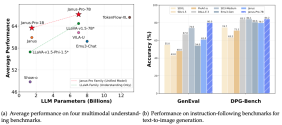If all this is true, the CHIPS Act, which was designed to slow China in the AI race, may turn out to be one of the worst backfires in history. (I tried to warn a number of people in the Biden administration about this possibility in the summer of 2023; instead of listening, they recently doubled down, in one of Biden’s final executive orders.)
The most obvious worry was that the CHIPS Act would encourage China to build its own chips. People in the White House indeed foresaw that, and China has in fact already invested many billions towards that end. Still, many in Washington appeared to see the export controls as an urgently needed delaying tactic, perhaps guessing that it would buy the US a few critical years and somehow secure a permanent advantage.
I never bought this argument because I figured that getting to GPT-5 first might buy the winner better boilerplate text writing, but not military genius. Getting there first just wasn’t going to matter in the long run, any more than a US company to getting to GPT-4-level GenAI did, in the grand scheme of things; as we saw this week, the advantage was fleeting. Nonetheless, the Biden administration, perhaps caught in the hype, seemed willing to gamble an awful lot for a short-term advantage, even if it meant straining relations with Beijing or spurring China’s own future innovation in silicon manufacturing. (Trump’s boosting of Stargate seemingly fits with the same magical thinking in LLMs, premised on the same hope of achieving a supremacy that may never come.)
Instead, as we have seen in recent weeks, Silicon Valley’s initial advantage in LLMs evaporated quickly, despite export controls.
But not (as some of us thought) because China ramped up H100 equivalents quickly (a big multi-year job, far from complete), but because they figured out how to work around them.
We accidentally upped their technical game. In the FT, Angela Zhang argued, “China’s achievements in efficiency are no accident. They directly respond to the escalating export restrictions imposed by the US and its allies. By limiting China’s access to advanced AI chips, the US has inadvertently spurred its innovation.”
And maybe kneecapped our greatest silicon company, Nvidia. In exchange for very little, aside from a brief stock bump for Nvidia (which prospered for a while when too many people bet wrongly that the answer to AI lay in their premium chips).




